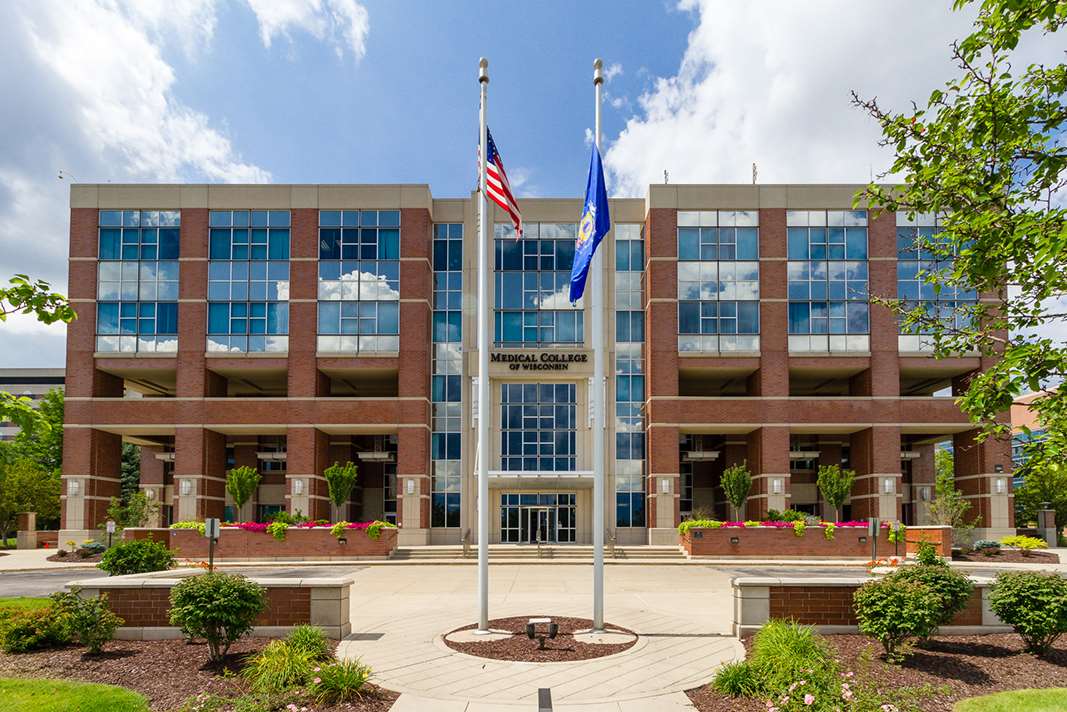Medical College of Wisconsin Researchers Part of National Effort to Develop Regenerative Treatments for Blindness
Of the five grants awarded nationally under the NEI initiative, the MCW grant is about $6.25 million over 5 years.
Milwaukee, Nov. 13, 2018 – The National Eye Institute’s Audacious Goal Initiative for Regenerative Medicine has awarded Joseph Carroll, PhD, professor of ophthalmology & visual sciences at the Medical College of Wisconsin (MCW), a grant to develop new research models to advance treatments for blinding conditions such as glaucoma, age-related macular degeneration, retinitis pigmentosa and other degenerative eye diseases.
Of the five grants awarded nationally under the NEI initiative, the MCW grant is about $6.25 million over 5 years. The aim of this NEI initiative is to enable researchers to test novel regenerative therapies, including gene- and cell-based therapies, and help transition them to the clinic. Dr. Carroll is co-principal investigator with Jacque Duncan, MD, of the University of California San Francisco Medical Center and is also working with MCW researchers Christopher Pawela, PhD, assistant professor of anesthesiology; Aron Guerts, PhD, associate professor of physiology, and Daniel M. Lipinski, PhD, assistant professor of ophthalmology and visual sciences and cell biology, neurobiology and anatomy, on the project, “Developing Cone-Dominant Retinal Disease Models as a Resource for Translational Vision Research.”
Dr. Carroll’s research team will develop, characterize and disseminate two promising model systems that are closer to human visual anatomy and function than current mouse and rat models: the 13-lined ground squirrel and the tree shrew, both cone-dominant animals. Models like these that closely match human eyes – including the type and density of light-sensing cells, the pathways for connecting the eye to the brain and the brain regions that support vision – will help Dr. Carroll and his team of scientists create and test new methods to preserve and restore sight.
“A major strength of this application is the multidisciplinary team that has been assembled to take on this challenging project. The team brings the necessary complementary expertise required for model development, stem cell treatment, and evaluation of cell survival, integration and function,” Dr. Carroll said. “This work will provide not only validated disease models but also generalizable tools with which to create additional models in these and other species.”
About the Medical College of Wisconsin
With a history dating back to 1893, The Medical College of Wisconsin is dedicated to leadership and excellence in education, patient care, research and community engagement. More than 1,200 students are enrolled in MCW’s medical school and graduate school programs in Milwaukee, Green Bay, and Central Wisconsin. MCW’s School of Pharmacy opened in 2017. A major national research center, MCW is the largest research institution in the Milwaukee metro area and second largest in Wisconsin. In FY2016, faculty received more than $184 million in external support for research, teaching, training and related purposes. This total includes highly competitive research and training awards from the National Institutes of Health (NIH). Annually, MCW faculty direct or collaborate on more than 3,100 research studies, including clinical trials. Additionally, more than 1,500 physicians provide care in virtually every specialty of medicine for more than 525,000 patients annually.
NOTE: This press release was submitted to Urban Milwaukee and was not written by an Urban Milwaukee writer. While it is believed to be reliable, Urban Milwaukee does not guarantee its accuracy or completeness.
Mentioned in This Press Release
Recent Press Releases by Medical College of Wisconsin
Midwests Only Holistic Brain Injury Treatment Program for Military Veterans and First Responders Adds Staff, Space Due to Rapid Growth
Dec 8th, 2025 by Medical College of WisconsinThe BRAVE program outgrows its initial space in less than two years.
Audaxity Bike Ride Raises More Than $1 Million to Accelerate Cancer Research at the Medical College of Wisconsin Cancer Center
Nov 13th, 2025 by Medical College of WisconsinFunds from the inaugural community ride will help turn discoveries into new cancer treatments, train future physician-scientists, and expand community-driven research efforts.





















